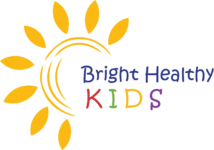As you are probably aware, there is a great deal of flu-like illness in our area at this time. Many children and adults have fever, runny nose, headache, body aches, cough and sore throats. The main infection going around right now is actually the influenza virus (the flu). In Georgia, this is not the time of year for the flu. Testing has confirmed that the flu strain circulating right now is the novel H1N1 or “swine” flu. It is actually at epidemic levels in Georgia right now, and we are seeing dozens of kids a day with the flu.
Despite some media reports, this should not be a cause for alarm at this point. We are having a flu outbreak just like we do every year, but not at the same time of year as usual. The H1N1 flu tends to be milder than the typical seasonal flu. Some people have died from it, including children; however, most of these children had chronic illnesses, and the seasonal flu actually kills over 36,000 Americans every year. It just does not usually make the news.
There is NO vaccine at this time for the H1N1 flu. There should be one this fall or winter. It is still unclear whether it will be used in children, and no one is sure how many doses will be needed or what the risks or side effects of the vaccine will be, or who will be recommended for the vaccine. There are NO answers to these questions at this time.
The best way to prevent the flu is by handwashing, avoiding daycare and nurseries when possible, and having people with the flu stay home until no longer contagious.
If your child has flu-like symptoms:
- Testing for the flu is NOT recommended. The test is inaccurate for H1N1 and the result will not change the treatment. We are not routinely testing for it in our office.
- Treatment with antiviral medication such as Tamiflu is NOT recommended in healthy patients who are not hospitalized with severe disease. It may be considered in those with diabetes, severe asthma, or significant heart disease. We are not prescribing Tamiflu to healthy children.
- The flu can be treated at home. Treatment consists of fluids, rest, acetaminophen or ibuprofen for fever, body aches, headache, and/or sore throat. Remember that a fever will not harm your child.
- Children 6 years and up can try over-the-counter cough and cold medications, although these are of limited benefit. They may help symptoms for several hours then will wear off. We do not advise using these medications.
- Your child should be seen if there are concerns about dehydration or your child seems very ill or has wheezing or difficulty breathing or chest pain, abdominal pain or a stiff neck, or has fever and is less than 12 weeks old.
- Your child should be seen if she has a sore throat, headache and/or fever without runny nose or congestion (to see if she has strep throat) or if there is ear pain.
- Your child should be seen if fever goes away for 24 or more hours and then comes back (to check for secondary infection such as pneumonia).
- Your child can return to school or daycare when there has been no fever (with no medication for fever given) in 24 hours.
For more information: www.cdc.gov/h1n1flu
